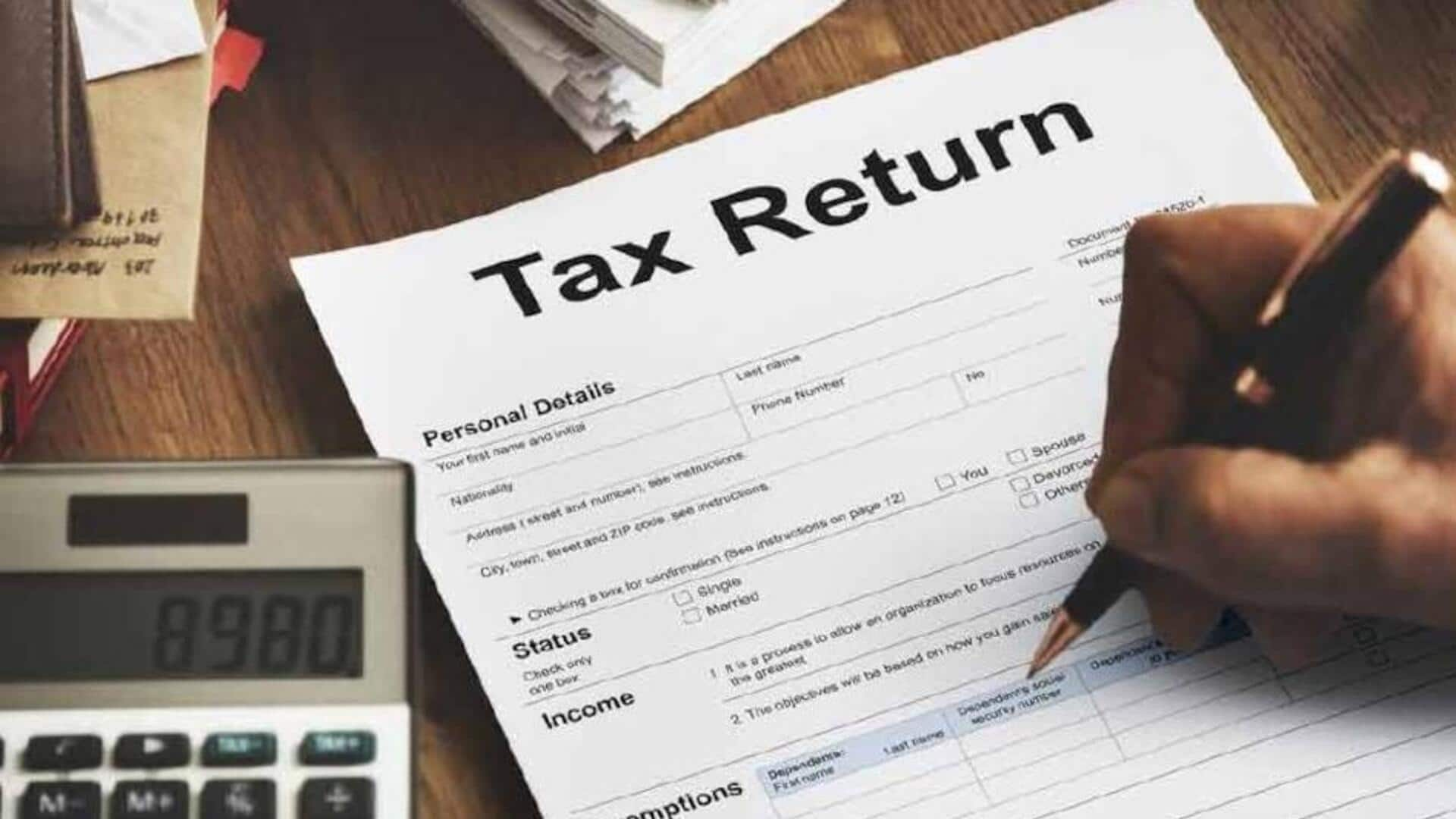
Online filing of ITR-1 and ITR-4 now live—Who can apply?
What's the story
The Income Tax Department has enabled online filing of ITR-1 and ITR-4 forms for the financial year 2024-25 (Assessment Year 2025-26). The move is aimed at simplifying the process of tax return filing. However, it's important to note that not all taxpayers are eligible to file using these forms. The department has specified the eligibility criteria for each form based on income sources and limits.
Eligibility
Who can file ITR-1?
ITR-1, also known as Sahaj, can be filed by Indian resident individuals whose total income doesn't exceed ₹50 lakh in a financial year. The income should be from salary, one house property, family pension income, agricultural income (up to ₹5,000), and other sources like interest from savings accounts or deposits (Bank/Post Office/Cooperative Society), interest on Income Tax refund and Enhanced Compensation.
Exclusions
Income types not covered under ITR-1
The Income Tax Department has clarified that certain income types do not come under ITR-1. These include profits and gains from business and professions, capital gains, income from more than one house property, and other sources like lottery winnings or activities related to owning/maintaining race horses. This is to ensure that only eligible taxpayers use this simplified form for filing their returns.
Eligibility criteria
Who can file ITR-4?
ITR-4 can be filed by resident individuals, Hindu Undivided Families (HUFs), and firms (other than LLPs) with an income not exceeding ₹50 lakh during the financial year. The income should be from business and profession computed on a presumptive basis under sections 44AD, 44ADA or 44AE. It can also include salary/pension, one house property, agricultural income (up to ₹5,000) and other sources excluding winnings from lottery and race horses.
Exclusions
Exclusions for filing ITR-4
ITR-4 cannot be filed by a Resident but Not Ordinarily Resident (RNOR), or Non-Resident Indian. Those with total income exceeding ₹50 lakh, agricultural income exceeding ₹5,000, directors in a company, or those with income from more than one house property are also not eligible. Other exclusions include those with certain types of income like lottery winnings or maintaining race horses and unlisted equity shares held during the previous year.